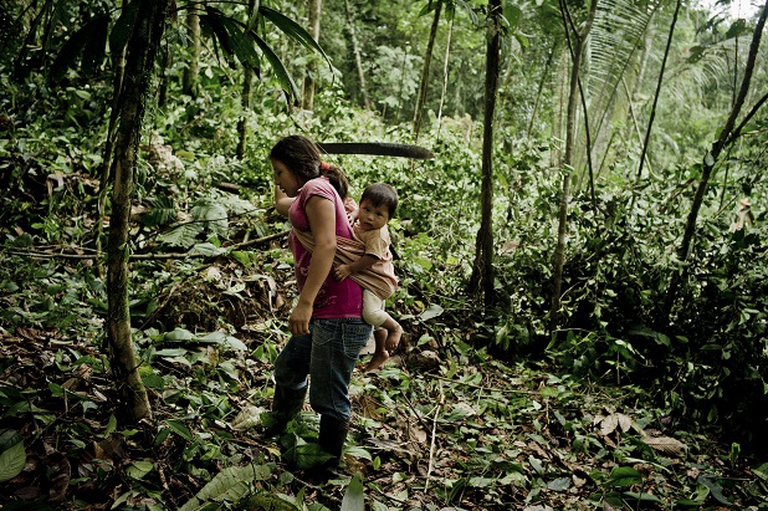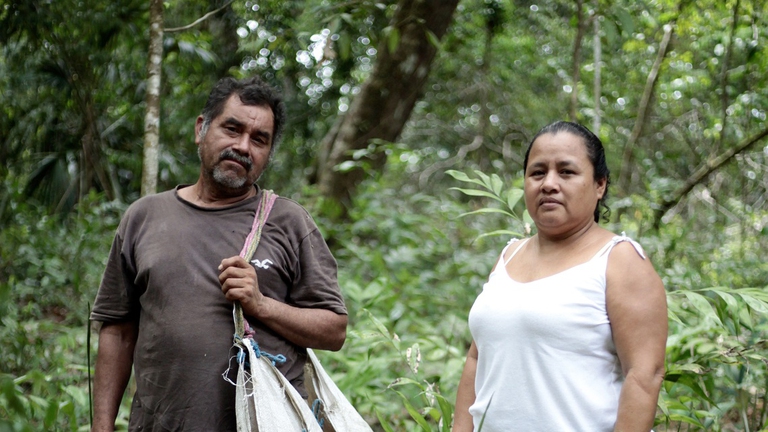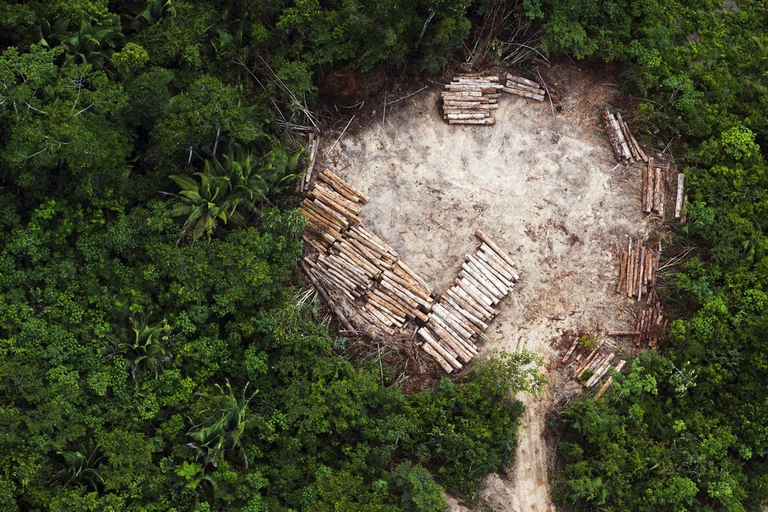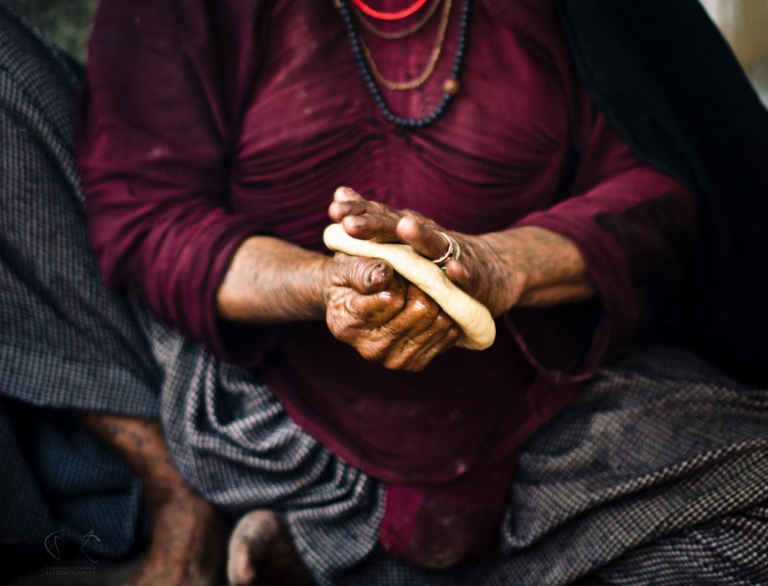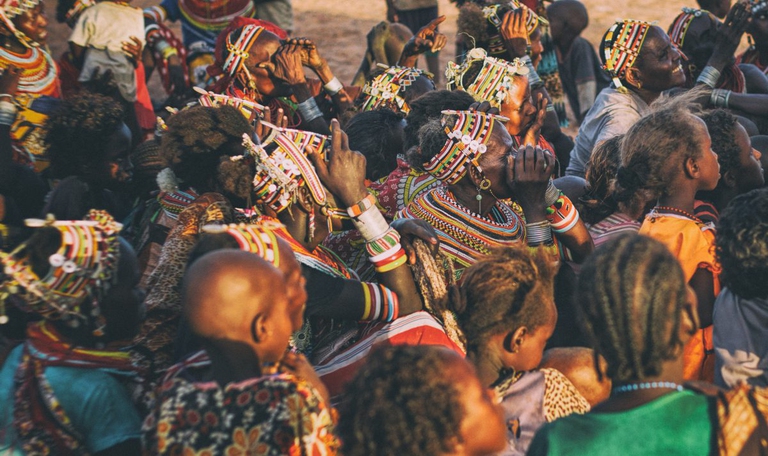
A special report from the Yuqui territory delves deep into the dreams, challenges, joys and sadness of one of Bolivia’s most vulnerable indigenous groups.
Protecting the traditional knowledge and territories of indigenous peoples means helping achieve a sustainable, hunger-free world and contributing to the fight against deforestation and climate change.
For years, the importance of indigenous peoples in the fight against deforestation, land degradation and climate change was overlooked and even denied, to the detriment of the environment and the food systems on which we all depend. Thanks to the global advocacy of indigenous peoples and their organizations, this tendency is changing, though not fast enough.
Some 370 million people identify themselves as members of indigenous cultures. While indigenous peoples make up less than five percent of the world’s total population, they wield enormous influence over the well-being of the natural resources on which we all depend. They manage 28 per cent of the world’s land surface and, are the de facto guardians of 80 per cent of global biodiversity — including most of the plant and animal species on Earth.
Read also: Why indigenous communities are essential to prevent forest fires
As family farmers, fishers, pastoralists and forest-dwellers, indigenous peoples apply traditional methods of land management and food production which have evolved over centuries and which have often proven their sustainability and resilience in the face of environmental changes.
Indigenous knowledge systems and languages contribute directly to biological and cultural diversity, poverty eradication, conflict resolution, food security and ecosystem health, and serve as the foundation of the resilience of indigenous communities to the impact of climate change. Their awareness of traditional food sources and the fundamental connection between food systems and healthy landscapes can help promote diets that are diverse and sustainable.
Read also: As climate change alters agriculture, forest food could be the answer. India’s indigenous Kondhs prove it
The vital role of indigenous peoples was recognized in the 2007 United Nations Declaration on the Rights of Indigenous Peoples. And, yet, indigenous peoples continue to suffer disproportionately high levels of land insecurity, social dislocation and violence while defending their traditional lands. They also make up 15 per cent of the world’s poorest people.
These and other factors, including youth migration, are causing traditional knowledge and indigenous food systems to disappear at an alarming rate. They are also contributing to the rapid loss of indigenous languages. In fact, this year’s observance of the International Day of the World’s Indigenous Peoples on 9 August focuses attention on the world’s 7,000 indigenous languages, in keeping with the year-long observance of the International Year of Indigenous Languages.
Read also: 2019 is the International Year of Indigenous Languages. In defence of those fighting for their identity
When, in 2015, the international community agreed on 17 Sustainable development goals (SDGs), a set of targets for improving lives while protecting natural resources by the year 2030, they included specific mention of indigenous peoples and acknowledged that there can be no truly sustainable development without protecting the traditional knowledge and territories of indigenous peoples.
We can look to the world’s forests for an example of why this is so. Forests continue to be critical for the food security, livelihoods, culture and spiritual identity of indigenous peoples. Their resources include nutritious foods and medicines, household materials, and the income gained from selling forest products.
Indigenous knowledge can be combined with new information and innovation in agriculture and land management to protect biodiversity and foster integrated sustainable management of diverse food systems and conservation of traditional medicines. But this approach requires urgent, consistent action.
In countries like Indonesia and Peru, governments and organisations of indigenous peoples are working to develop appropriate forestry policies that take into consideration the land, resource rights and views of indigenous peoples, providing communities with land tenure options, and offering farmers, fishers and forest-dwellers training in updated techniques to address climate change and forest management.
Read also: These indigenous women in Guatemala are weaving to fight exclusion
In Cote d’Ivoire, Panama and elsewhere, new technologies, such as drone-supported mapping of forest cover and territories, are being used to support sustainable land-management practices and recognition of traditional, land-ownership rights.
Other initiatives to support indigenous peoples include finding new markets for traditional products, developing forest and land management plans that are climate resistant, promoting protection of indigenous intellectual property and cultural identities, and developing systems for indigenous peoples to negotiate and resolve potential conflicts with the holders of private forest concessions.
In recent months, the Food and Agriculture Organization of the United Nations (FAO) hosted the first-ever high-level, expert meeting on indigenous food systems. In the near future, a forthcoming FAO report based on two years of research is expected to shed further light on the experiences of indigenous peoples, their needs and their potential to help achieve a sustainable, hunger-free world.
While these are encouraging signs of commitment, it will take urgent, broader policy changes and community-based action, particularly around the recognition of land rights, to bring about significant, lasting improvements in the lives of indigenous peoples and the natural resources which are vital to us all.
Read also: 11 of the most important indigenous victories
Fortunately, the next generation of indigenous peoples, the youth, are showing signs of mobilising to keep up the momentum. It is our collective responsibility to support them and, ultimately, the well-being of our Planet.
Siamo anche su WhatsApp. Segui il canale ufficiale LifeGate per restare aggiornata, aggiornato sulle ultime notizie e sulle nostre attività.
![]()
Quest'opera è distribuita con Licenza Creative Commons Attribuzione - Non commerciale - Non opere derivate 4.0 Internazionale.
A special report from the Yuqui territory delves deep into the dreams, challenges, joys and sadness of one of Bolivia’s most vulnerable indigenous groups.
The Yuqui people of the Bolivian Amazon fight not only to survive in the face of settlers, logging and Covid-19, but to preserve their culture and identity.
Jair Bolsonaro is accused of crimes against humanity for persecuting indigenous Brazilians and destroying the Amazon. We speak to William Bourdon and Charly Salkazanov, the lawyers bringing the case before the ICC.
Activists hail the decision not to hold the 2023 World Anthropology Congress at a controversial Indian school for tribal children as originally planned.
Autumn Peltier is a water defender who began her fight for indigenous Canadians’ right to clean drinking water when she was only eight years old.
The pandemic threatens some of the world’s most endangered indigenous peoples, such as the Great Andamanese of the Andaman and Nicobar Islands in India.
The Upopoy National Ainu Museum has finally opened. With it the indigenous people of Hokkaido are gaining recognition but not access to fundamental rights.
A video shows the violent arrest of indigenous Chief Allan Adam, who was beaten by two Royal Canadian Mounted Police (RCMP) officers.
